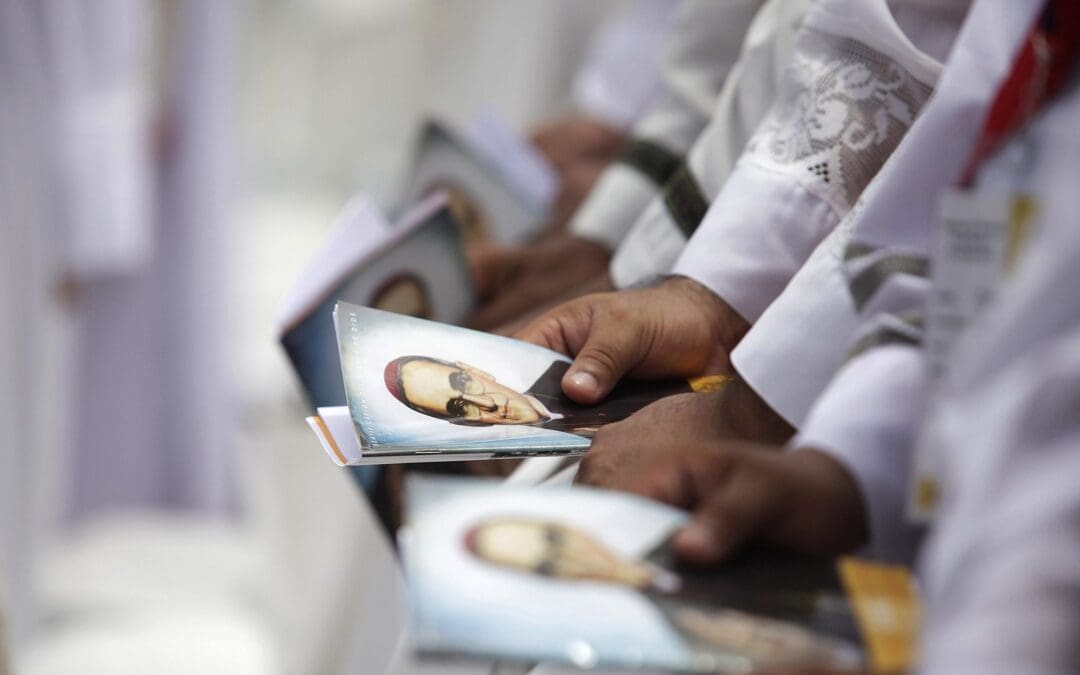Monday, March 24th, marked the 45th anniversary of the assassination of Archbishop Oscar Romero in El Salvador. A day after preaching a sermon in which he called on his country’s soldiers to stop participating in their government’s repressive activities and violations of human rights, Romero was murdered on March 24, 1980. He had just finished celebrating communion at a small church-run hospital. A few years earlier, in 1977, following the assassination of his friend and fellow priest, Rutilio Grande, Romero tied the struggle for human rights to the church’s freedom from sin. He said:
When we struggle for human rights,
for freedom,
for dignity,
when we feel that it is a ministry of the church
to concern itself for those who are hungry,
for those who are deprived,
we are not departing from God’s promise.
He comes to free us from sin,
and the church knows that sin’s consequences
are all such injustices and abuses.
The church knows it is saving the world
when it undertakes to speak also of such things.
Romero’s appeal to the church then remains the high calling of the church now. As the church undertakes to speak up on behalf of the hungry and the deprived, it embraces Jesus’ promise that telling the truth leads to living free (John 8:32). If you want to read more from Romero’s speeches and sermons, a good place to start is The Violence of Love (1988).
_____________________________________________
Dr. Inscore Essick is Associate Professor of Church History and Director of the Rural Ministry Program at BSK. Most of his scholarly and ministerial energies are spent studying rural ministry and Baptist history. Dr. Inscore Essick is Book Review Editor for the journal American Baptist Quarterly and also a member of The National Association of the Baptist Professors of Religion and the Baptist History and Heritage Society.


